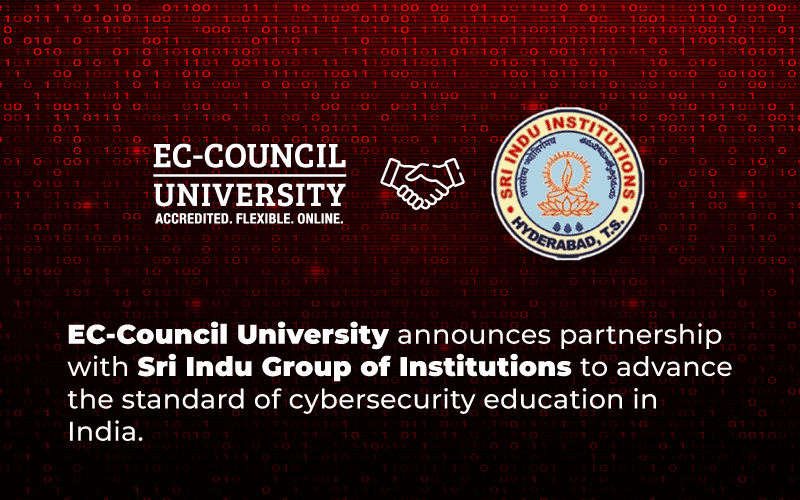In an age where cyber warfare is as critical as physical battles, the armed forces increasingly rely on robust training programs to protect sensitive information and national security. Cyber threats are more sophisticated and targeted, aiming to exploit vulnerabilities in defense systems and personnel. Army Cyber Awareness Training has become an essential tool in the military’s arsenal to counter these evolving challenges. This training ensures that every individual, from frontline soldiers to IT specialists, is equipped with the knowledge and skills to combat cyber threats efficiently.
This blog delves into the importance of army cyber awareness, the role of DoD Cyber Awareness Training, and how Information Security Training Army programs contribute to fortifying national defense against the latest cyber threats.
Understanding Army Cyber Awareness Training
Army Cyber Awareness Training equips military personnel with the knowledge and skills to traverse the evolving landscape of cyber threats. Unlike conventional training, these programs focus on both technical and non-technical aspects of cybersecurity, ensuring that every member of the armed forces understands their role in maintaining information security.
The training emphasizes areas such as:
- Recognizing phishing attempts and social engineering tactics.
- Ensuring safe browsing and secure use of military networks.
- Identifying and reporting suspicious activities.
- Adhering to the best practices for handling classified and sensitive information.
With its foundation rooted in DoD Cyber Awareness Training, these programs set a high standard for cyber resilience across military operations.
Why Is Army Cyber Awareness Training Crucial?
The importance of army cyber awareness cannot be overstated. Cyber-attacks on military networks and defense systems directly threaten national security. Here‘s why the training is indispensable:
- Increasing Complexity of Cyber Threats: The cyber threat landscape has evolved significantly, with attackers leveraging advanced techniques like ransomware, zero-day exploits, and AI-driven attacks. Cybercriminals often target defense systems for espionage, sabotage, or financial gain. Army personnel, therefore, need advanced awareness to detect and respond to such threats proactively.
- Human Error: According to the 2024 Data Breach Investigations Report, 68% of breaches involved a non-malicious human element, such as a person falling prey to a social engineering attack or making an error (Verizon Business. 2024). This highlights the significance of human factors in cybersecurity risks. An unintentional click on a malicious link or an insecure password can compromise an entire network. Army Cyber Awareness Training minimizes such risks by instilling a culture of vigilance and accountability among military staff.
- Protecting Classified Information: Sensitive military data, including operational plans, personnel information, and technological blueprints, is a prime target for adversaries. This training ensures that personnel understand the protocols for handling and securing classified information, safeguarding it from unauthorized access.
Key Components of Army Cyber Awareness Training:
Army Cyber Awareness Training protects sensitive military information and ensures operational security in an increasingly digital world. Its effectiveness stems from a comprehensive approach designed to tackle the diverse array of threats faced by military personnel. One of the key components is Phishing and Social Engineering Awareness, as 91% of all cyberattacks often begin with a phishing email targeting an unaware individual (Deloitte. 2020). This training teaches personnel to recognize red flags such as suspicious emails, fake login pages, and unsolicited attachments.
Secure Communication Practices are also emphasized, especially given the army’s frequent exchange of sensitive information. The training promotes the use of encrypted communication channels and secure protocols, helping mitigate the risks of interception. Cyber Hygiene Best Practices are also taught to ensure personnel maintain strong passwords, avoid untrusted websites, and regularly update software. These practices are crucial, as vulnerabilities in outdated software or weak passwords are among the most exploited cyber weaknesses.
Incident Reporting and Response training helps personnel understand the importance of prompt reporting in minimizing damage. Role-specific training tailors cybersecurity insights to meet the needs of different personnel, from IT specialists to field operatives. This ensures everyone receives the relevant knowledge to safeguard themselves and the organization from cyber threats regardless of their position.
The Impact of Army Cyber Awareness on Combatting Cyber Threats
The ripple effects of Army Cyber Awareness Training extend far beyond individual soldiers, strengthening the overall cybersecurity posture of the military. Here‘s how it makes an impact:
- Enhanced Situational Awareness: Soldiers trained in cyber awareness can identify unusual activities in real time, such as unauthorized access attempts or unusual system behaviors. This ability to detect and report threats early is crucial for preventing major incidents.
- Improved Network Security: Through DoD Cyber Awareness Training, personnel learn to adhere to strict network access and usage protocols, reducing the likelihood of breaches. Enforcing such standards across the board ensures a more secure digital infrastructure.
- Reduced Insider Threats: Insider threats, whether intentional or accidental, pose a significant risk to military operations. The training effectively reduces such risks by educating personnel on the consequences of mishandling sensitive data and unauthorized system use.
- Faster Recovery from Attacks: No system is immune to cyberattacks despite preventive measures. The training equips soldiers with the knowledge to respond quickly and effectively, minimizing downtime and ensuring a swift recovery.
- Cultivating a Security-First Mindset: Perhaps the most profound impact of the training is its ability to instill a security-first mindset. When every military member understands their role in cybersecurity, it creates a collective defense mechanism far more robust than relying solely on technology.
Adapting to the Future of Cyber Threats
As cyber threats continue to evolve, so must the training programs designed to counter them. Information Security Training Army programs are being updated regularly to address emerging risks. The emergence of artificial intelligence in cyberattacks has prompted the inclusion of modules on AI threat detection. Similarly, with the growing use of IoT devices in military operations, personnel are now trained to secure these devices against exploitation. The integration of real-world simulations and gamified learning has further enhanced the effectiveness of these programs, making them more engaging and impactful.
In an era where cybersecurity is synonymous with national security, this training is not just a necessity; it’s an imperative.
How can EC-Council University help with this?
For those looking to take their cybersecurity expertise further, EC-Council University offers degree programs and courses that include industry-recognized certifications like CEH (Certified Ethical Hacker) and CND (Certified Network Defender). These programs are designed to provide the introductory knowledge and advanced skills needed to combat cyber threats effectively and can be an excellent starting point for those seeking to build a robust career in cybersecurity.
References:
- Verizon Business. (2024). 2024 Data Breach Investigations Report. https://www.verizon.com/business/resources/reports/dbir/
- Deloitte. (9 January 2020). Press releases. https://www2.deloitte.com/my/en/pages/risk/articles/91-percent-of-all-cyber-attacks-begin-with-a-phishing-email-to-an-unexpected-victim.html








